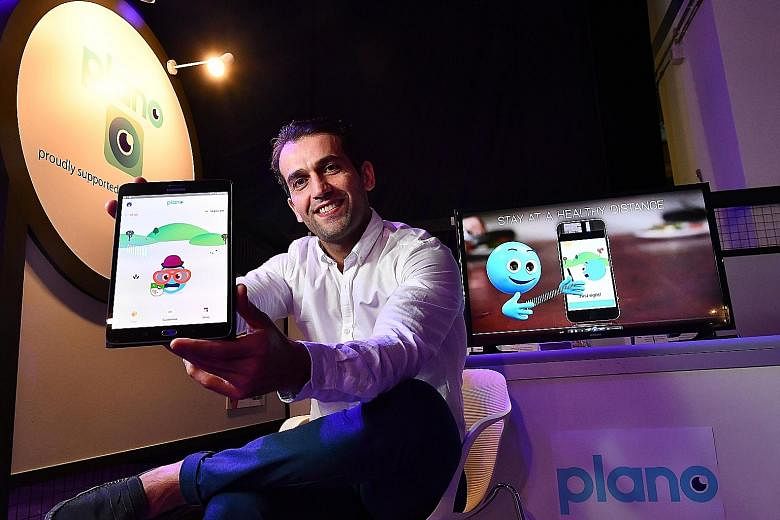Parents worried about children hurting their eyesight from hours spent staring at smartphone screens can now download an app to try and address the problem.
The app, named Plano, can be used to keep track of a child's smart device use and usage habits.
Parents can monitor the frequency and length of time spent on the devices, the apps their children are using, and the distance at which they hold the device.
The app will even remind children to take breaks and move the device farther from their eyes when needed. As a last resort, parents can also use the app to shut down the child's device.
Plano was released by Singapore Eye Research Institute-Singapore National Eye Centre's Ophthalmic Technologies Incubator Programme, and it seeks to address what eye experts say is an alarming rise in myopia among the young.
According to Associate Professor Audrey Chia, head and senior consultant, Paediatric Ophthalmology and Strabismus Department of Singapore National Eye Centre, about 10 per cent of children here are myopic before they enter primary school; about 60 per cent by the time they enter secondary school; and about 80 per cent by the time they enter the workforce.
She said the number of those needing glasses before entering the workforce has doubled in the last two decades.
While it is difficult to say what is the direct role new technologies have on eye health, Prof Chia said: "Based on our knowledge of near work and myopia, we are suggesting to parents to limit time on handheld devices, discourage long hours of game play and video watching, to (remind children to) take eye breaks and to encourage children to go outdoors and play."
The new app does not just try and correct behaviour that leads to myopia, it hopes to detect it too. Plano incorporates a screening tool for myopia, which can assist in early detection of decreased vision in children.
The app captures important eye-related information to provide users with easy-to-read weekly or monthly reports to assist in improving device-use behaviour and inform parents of the state of their child's eye health.
The app has seen a total of $1.5 million in total incoming investment and will cost parents $4.99 a month, with the first month free.
According to Plano's founder and chief executive officer, Dr Mo Dirani: "Early detection and correction is important, as myopia can start to affect children as young as ages two to four. If parents come in early and start to create the right behaviour changes, we can delay the onset of eye conditions and reduce the risk of high myopia."
Dr Dirani has done over 14 years of research in myopia and diabetic eye disorders. He said it is important to have apps like Plano to empower people to take charge of their own eye health as it is projected that by 2050, myopia will affect more than half of the world's population. He is confident his app can make a difference.
"The younger the child is, the easier it is to correct their habits and prevent high myopia in the future."


